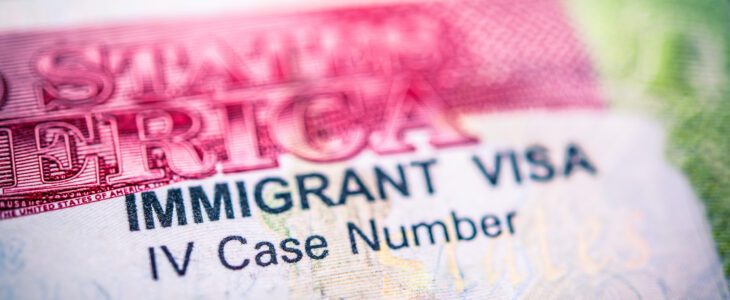Facing a visa revocation can feel overwhelming and uncertain. Whether it happens due to a misunderstanding or a more serious issue, it’s a situation that demands immediate attention. A revoked visa can disrupt your plans, affect your work or studies, and raise questions about your next steps. But you’re not alone in dealing with this challenge. Understanding your options can help you find a path forward and ensure you take the right steps to address the situation effectively.
Immediate Steps to Take After Your Visa Is Revoked
If your visa has been revoked, it’s important to act quickly and thoughtfully. First, gather any documentation you’ve received about the revocation, such as official notices or emails from immigration authorities. Understanding the reason behind the revocation is key to determining your next steps. Contact an immigration attorney who can guide you through the situation and help you assess the possibility of challenging the revocation.
It’s also crucial to avoid overstaying your visa’s validity period, as this can lead to further complications, including deportation or being barred from re-entering the United States. Pay attention to any deadlines provided, such as the timeframe for voluntary departure. Taking immediate steps to clarify your status and explore possible actions can help you manage the situation more effectively and potentially preserve your ability to remain in the country.
Common Reasons for Visa Revocation
Visas can be revoked for various reasons, and understanding why yours was revoked can help determine your next steps. Here are some common reasons for visa revocation:
- Non-compliance with Visa Terms: This includes failing to maintain student status, unauthorized employment, or staying beyond the visa’s expiration date.
- Security Concerns: If authorities believe the visa holder poses a risk to public safety, it can result in revocation.
- Criminal Activity: Even minor charges or convictions can trigger a review of your visa status, leading to potential revocation.
- Misrepresentation or Fraud: Providing false information during the visa application process, whether intentional or accidental, can result in visa cancellation.
- Changes in Circumstances: Situations like losing a job that was the basis for a work visa can affect visa validity.
- Administrative Errors: Mistakes or misunderstandings by immigration authorities can sometimes lead to visa revocation.
Options for Recourse: How to Appeal a Revoked Visa
If your visa has been revoked, you may have options to appeal the decision or seek other recourse. Understanding the appeal process can help you decide on the best course of action. Here are some key steps to consider:
- File a Motion to Reconsider: If you believe the revocation was due to a mistake or misunderstanding, you can request that immigration authorities review the decision again. Provide any additional evidence that supports your case, such as proof of compliance with visa terms.
- File a Motion to Reopen: This is appropriate if you have new evidence that wasn’t available during the initial decision. This motion can help strengthen your argument by presenting new information that could affect the outcome.
- Administrative Appeal: Some visa revocations can be challenged through a formal appeal with agencies like the Board of Immigration Appeals (BIA). This process typically involves submitting legal arguments and documentation to support your case.
- Consular Reprocessing: If the revocation occurred while you were outside the United States, you might need to go through the visa application process again at a U.S. consulate.
Timing is critical in all of these processes, as appeals often have specific deadlines. Seeking legal guidance can help you follow the correct procedures and meet the necessary timelines.
Alternative Visa Options: What to Do If Your Appeal Is Denied
If your appeal is denied, there are still options to explore for staying in the United States. One approach is to apply for a different type of visa that aligns with your current circumstances. For example, if you initially held a work visa and lost your job, a student visa or tourist visa might be more appropriate based on your new situation.
You may also qualify for a family-based visa if you have a spouse or close relative who is a U.S. citizen or lawful permanent resident. Depending on their situation, some individuals might be eligible for humanitarian options, such as asylum or Temporary Protected Status (TPS). It’s important to thoroughly review your eligibility for any new visa type before applying, as past revocations can impact future applications.
Contact an Experienced Orlando Immigration Attorney
Dealing with a visa revocation can be stressful, but understanding your options can make a difference. At Central Justice, we’re here to guide you through the process, from exploring appeals to finding alternative visa options. Contact us today for a consultation, and let us help you find the best path forward for your situation.


